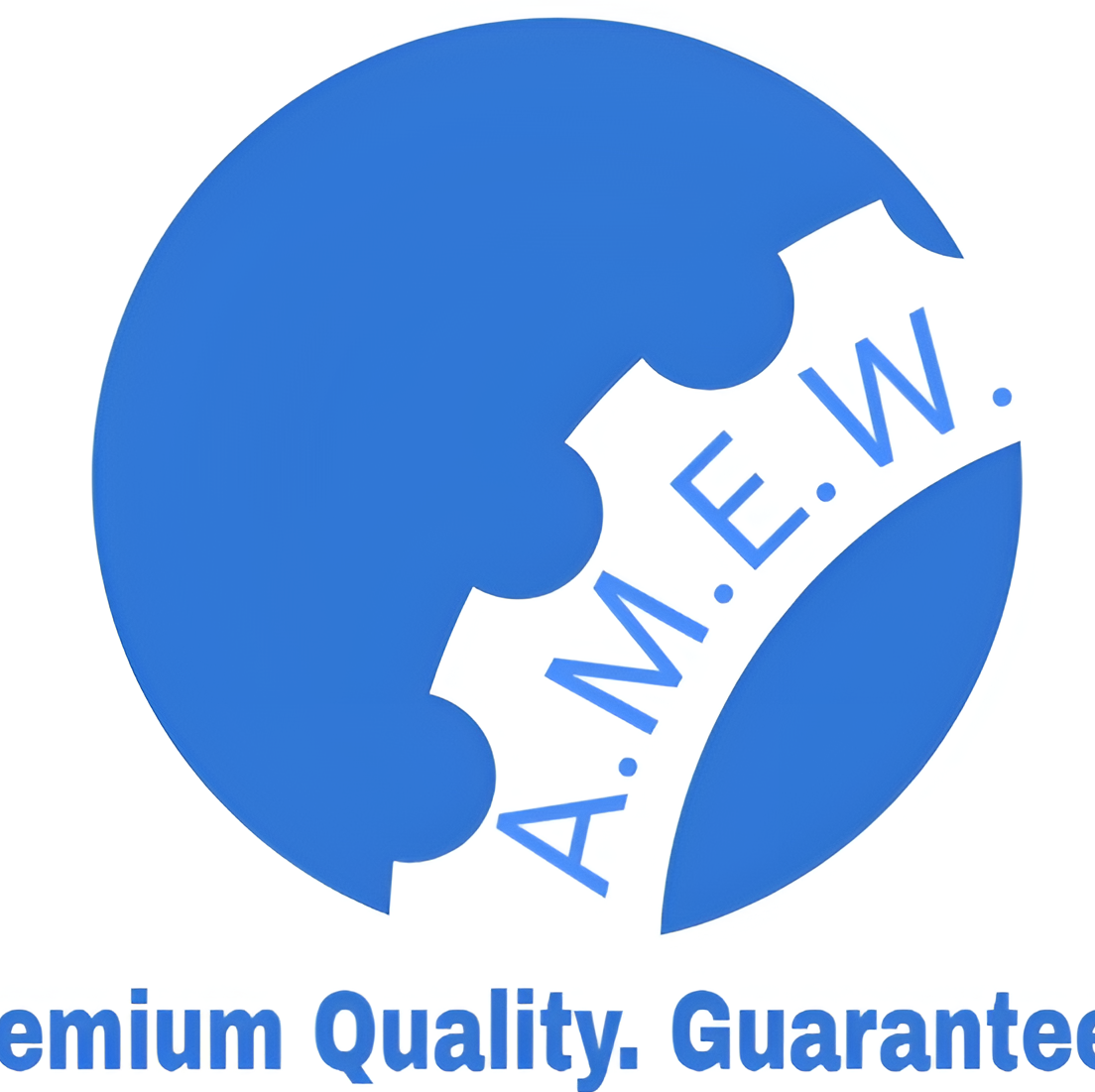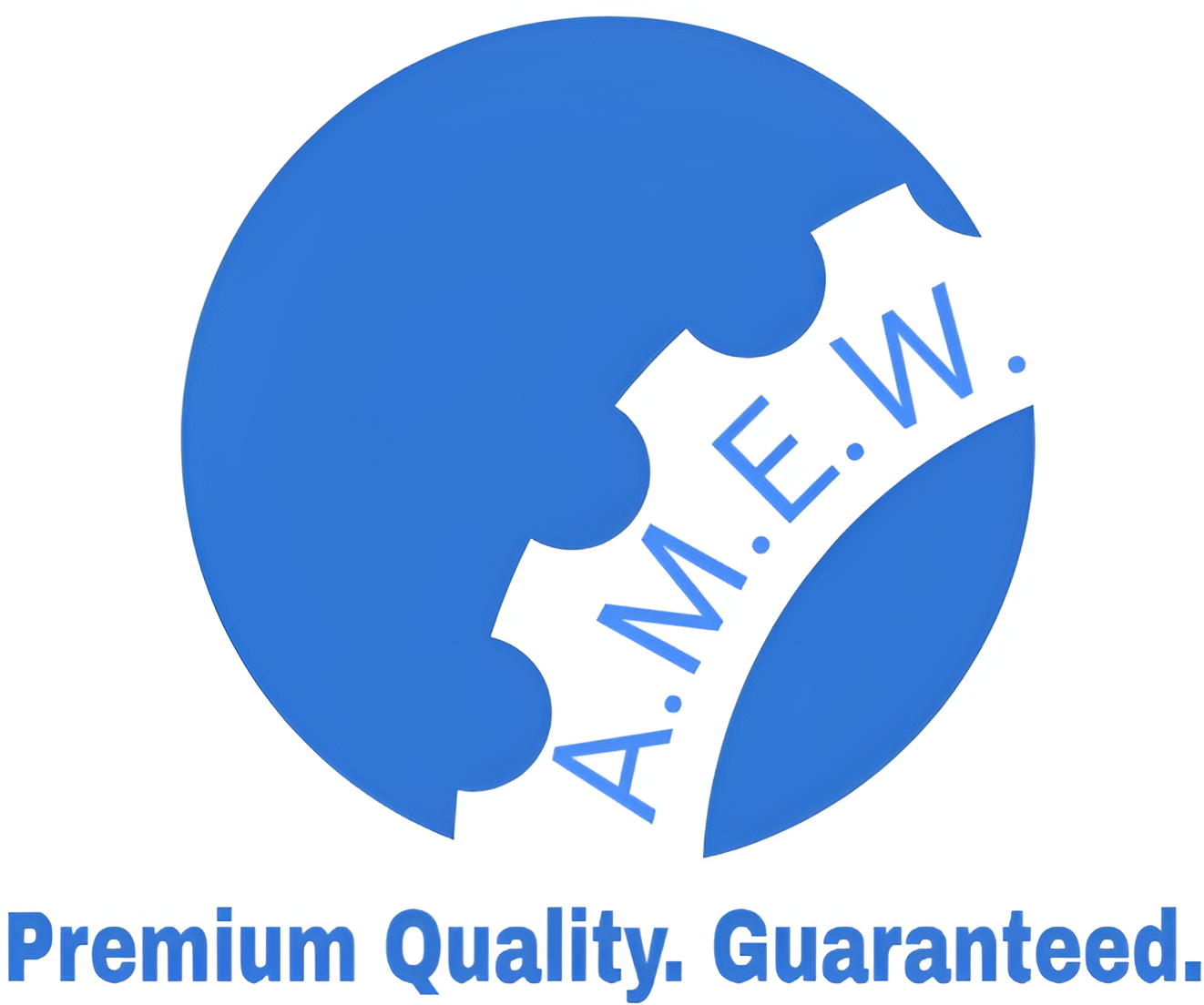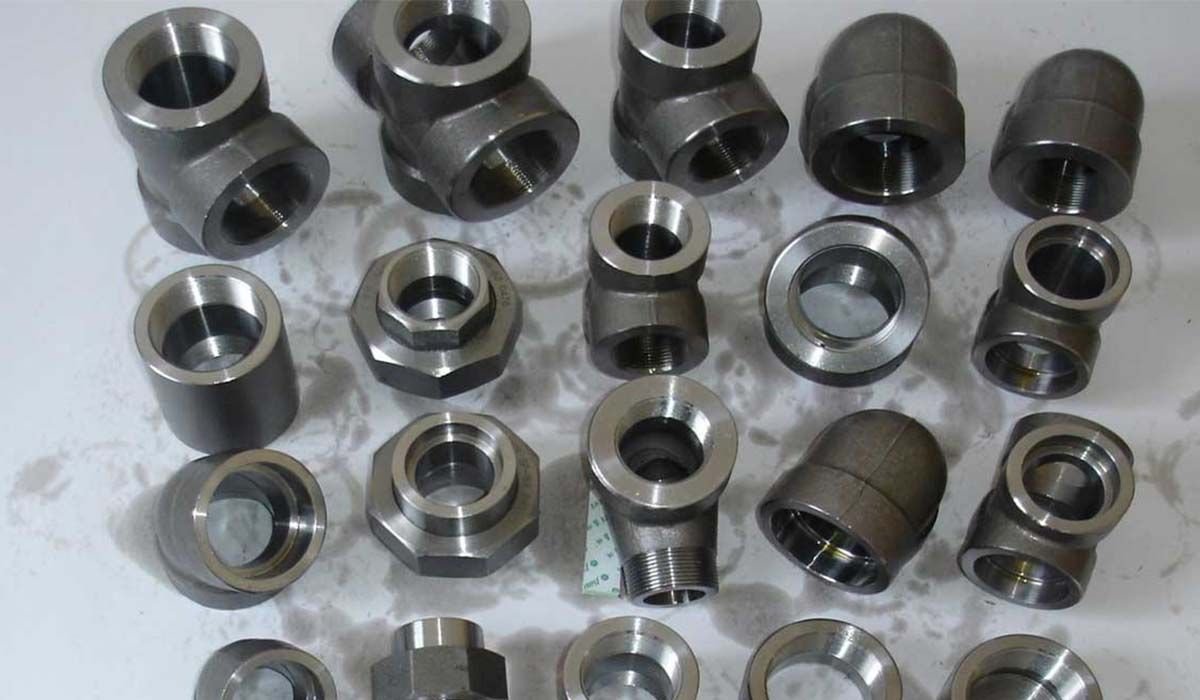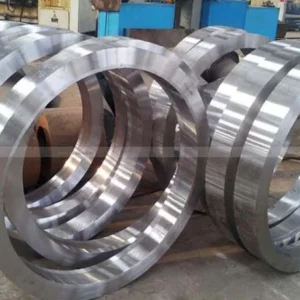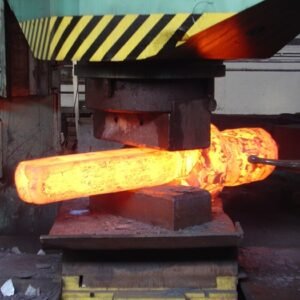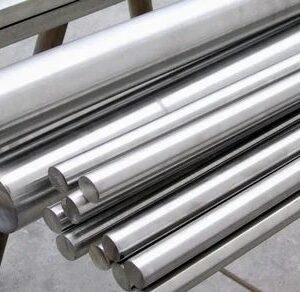Description
Forged Carbon Steel
What is Forged Carbon Steel?
Forged carbon steel is plain-carbon steel that has been plastically deformed under compressive forces (hammering, pressing, or rolling) to refine its grain structure, close internal porosity, and deliver superior strength, toughness, and reliability compared to cast or machined-from-solid alternatives. At AM Engineering Works, we leverage closed-die, open-die, and ring-rolling processes to supply near-net and net-shape forged components that minimize downstream machining, shorten lead times, and reduce total cost of ownership.
Why Choose Forging Over Casting or Fabrication?
Forging = directional grain flow + dense microstructure. That “mechanicalism” (read: mechanical reliability) is the reason critical industries—oil & gas, power, mining, rail, heavy equipment—trust forged carbon steel for shafts, flanges, blocks, gears, and step shafts.
Key advantages:
-
Higher strength-to-weight ratio thanks to refined, aligned grain flow.
-
Superior fatigue & impact resistance—ideal for cyclic or shock-loaded parts.
-
Reduced defect risk (voids, hot tears, inclusions) versus cast products.
-
Better machinability and dimensional stability after heat treatment.
-
Consistent, certifiable properties across heats and batches.
Key Mechanical Properties (What You Can Expect)
While exact values depend on grade, section thickness, and heat treatment, forged carbon steels generally provide:
-
High yield and tensile strength (improvable via normalizing, quenching & tempering).
-
Good ductility and elongation, enabling absorption of dynamic loads without brittle failure.
-
Robust Charpy V-notch impact toughness, especially in low-temperature grades (e.g., LF2, LF3).
-
Enhanced fatigue life due to oriented grain flow and minimized inclusions/porosity.
-
Good hardness controllability through precise post-forge heat treatment.
AM Engineering Works offers tailored heat-treatment cycles to hit your targeted mechanical property window, supported by complete MTCs (EN 10204 3.1/3.2) upon request.
Common Forged Carbon Steel Grades We Supply
Note: The table below lists representative, widely used grades. We regularly forge to other international standards and customer-specific specs. Reach out with your drawing and spec sheet for confirmation.
| Grade | Standard | Typical Condition | Notable Feature | Typical Applications |
|---|---|---|---|---|
| A105 / SA105 | ASTM / ASME | Normalized or As-Forged | General-purpose forged carbon steel for ambient-temperature service | Flanges, fittings, valve bodies |
| A350 LF2 Class 1/2 | ASTM / ASME | Normalized, Charpy tested | Low-temperature impact toughness | Flanges, nozzles, hubs for –46 °C service |
| A694 F42–F70 | ASTM / ASME | Normalized / QT | High-strength for pipeline components | High-pressure flanges, couplings |
| C45 / 1045 | EN / SAE | Normalized or QT | Medium-carbon, versatile mechanical performance | Shafts, gears, step shafts |
| S355J2 (EN 10025-2) | EN | Normalized | Good weldability and impact toughness at –20 °C | Blocks, rings, structural forgings |
| AISI 1020 / 1025 | SAE | Normalized | Excellent machinability, moderate strength | Pins, spindles, light-duty shafts |
| IS 2062 E250/E350 | IS | Normalized | Indian standard structural carbon steels | Base plates, blocks, general forgings |
Our Forging Capabilities (End-to-End)
At AM Engineering Works, we provide a complete, vertically integrated route:
1) Material Selection & Certification
We source billet/ingot from approved mills, verifying chemistry and cleanliness as per your drawing and standard. Need dual or multiple certification? We’ll advise and supply.
2) Process Engineering
Our team optimizes preform design, reduction ratio, and grain-flow orientation to deliver predictable mechanical properties and minimized machining allowances—reducing your cycle time and scrap.
3) Open-Die, Closed-Die & Ring-Rolled Forgings
-
Open-die forgings for large blocks, shafts, and step shafts.
-
Closed-die (impression-die) forgings for repeatable near-net shapes with tight tolerances.
-
Ring rolling for seamless rings with controlled wall thickness and superior concentricity.
Explore more: Open Die Forgings | Closed Die Forgings
4) Heat Treatment
We offer normalizing, quenching & tempering, annealing, stress relieving—with furnace charts and hardness records provided as needed.
Read more: Heat Treating
5) Rough & Finish Machining
From CNC turning, milling, drilling, and deep-hole boring to tight-tolerance bores and profiles—we deliver parts ready for assembly.
See: CNC Machining Services | Deep Hole Drilling
6) Testing & Documentation
-
Mechanical testing: Tensile, yield, elongation, reduction of area, Charpy V-notch.
-
NDT: UT, MPI, DP, RT on request.
-
Chemical analysis (Ladle & Product).
-
Dimensional inspection with calibrated instruments and CMM where required.
-
Mill Test Certificates per EN 10204 3.1 / 3.2.
Learn more: Quality & Certifications
Typical Applications
-
Oil & Gas / Petrochemicals: Flanges, adapter hubs, valves, blowout preventer components.
-
Power Generation: Turbine shafts, couplings, discs, spacers.
-
Mining & Construction: Crusher shafts, track components, wear blocks.
-
Rail & Heavy Transport: Axle blanks, wheels, gear blanks.
-
General Engineering: Gears, rolls, crankshafts, press columns, rings.
Available Forms & Size Range
-
Shafts & Step Shafts
-
Discs & Rings (seamless)
-
Blocks, Rectangles & Flats
-
Flanges & Fittings (standard & custom)
-
Custom Preforms for near-net machining
(Provide your target OD/ID/length, weight, and envelope—we will confirm forgeability, minimum reduction ratios, and best process path.)
Heat Treatment Options (Matched to Your Property Targets)
-
Normalizing (N): Refines grain size, improves toughness, balances properties.
-
Quench & Temper (Q&T): Maximizes strength and hardness while retaining ductility.
-
Annealing (A): Softens material for improved machinability and dimensional stability.
-
Stress Relieving (SR): Minimizes residual stresses after heavy machining or welding.
Inspection & NDT
Depending on your code/spec (ASME, ASTM, EN, ISO, API), we perform:
-
Ultrasonic Testing (UT) to specified acceptance levels (e.g., ASTM A388).
-
Magnetic Particle (MPI) / Dye Penetrant (DP) for surface-breaking defects.
-
Radiographic Testing (RT) for critical sections.
-
Hardness mapping & microstructural evaluation (grain size, banding, inclusions).
Documentation & Traceability
Every heat, billet, and forging is tracked to guarantee full traceability. We supply:
-
MTCs (3.1/3.2)
-
Heat-treatment charts
-
Dimensional inspection reports
-
NDT reports (UT/MPI/DP/RT)
-
Third-party inspection (TPI) coordination when required
How to Specify Your Forged Carbon Steel Part (RFQ Checklist)
To get a fast, accurate quote from AM Engineering Works, include:
-
Drawing / 3D model with complete dimensions & tolerances.
-
Material grade & standard (e.g., ASTM A105, A350 LF2 Cl.1).
-
Heat-treatment condition (N, QT, A, SR).
-
Mechanical property requirements (YS/UTS/El/Impact).
-
NDT requirements (UT level, MPI/DP, RT).
-
Testing & certification (MTC 3.1/3.2, hardness, microstructure).
-
Quantity & release schedule.
-
Final machining / rough machining needs.
-
End-use environment (temperature, pressure) if critical.
Why AM Engineering Works?
-
Decades of forging know-how backed by metallurgical support.
-
Flexible batch sizes—from prototyping to mass production.
-
Tight delivery control with in-house machining & heat treatment.
-
Global-standard quality with complete documentation and traceability.
-
Customer-first engineering—we optimize cost, lead time, and manufacturability.
Ready to Source Forged Carbon Steel?
Send us your drawings and specification to get started. Explore more related pages for a deeper dive:
AM Engineering Works is your single-source partner for reliable, certifiable forged carbon steel components—engineered for strength, machined for precision, and delivered on time.
